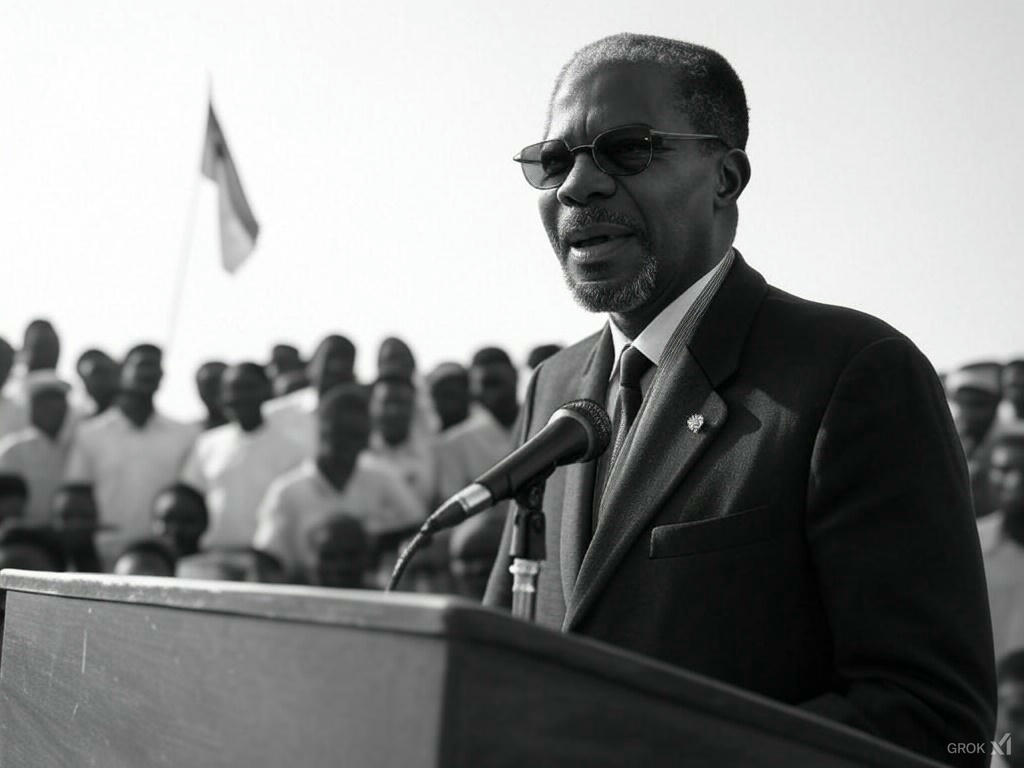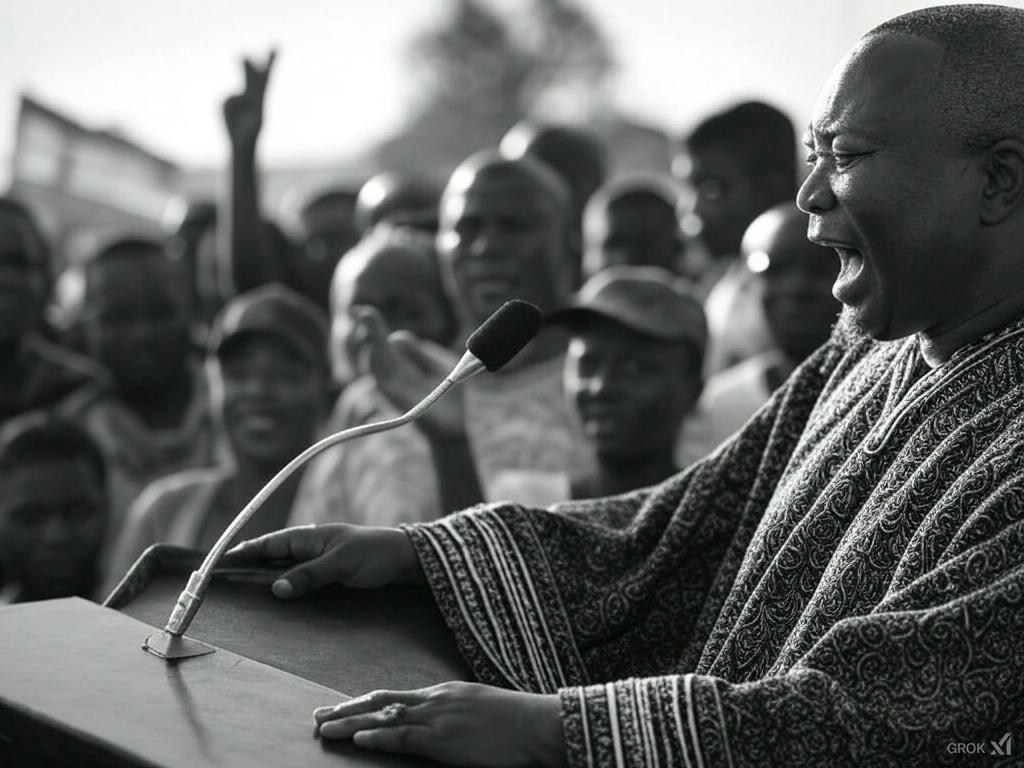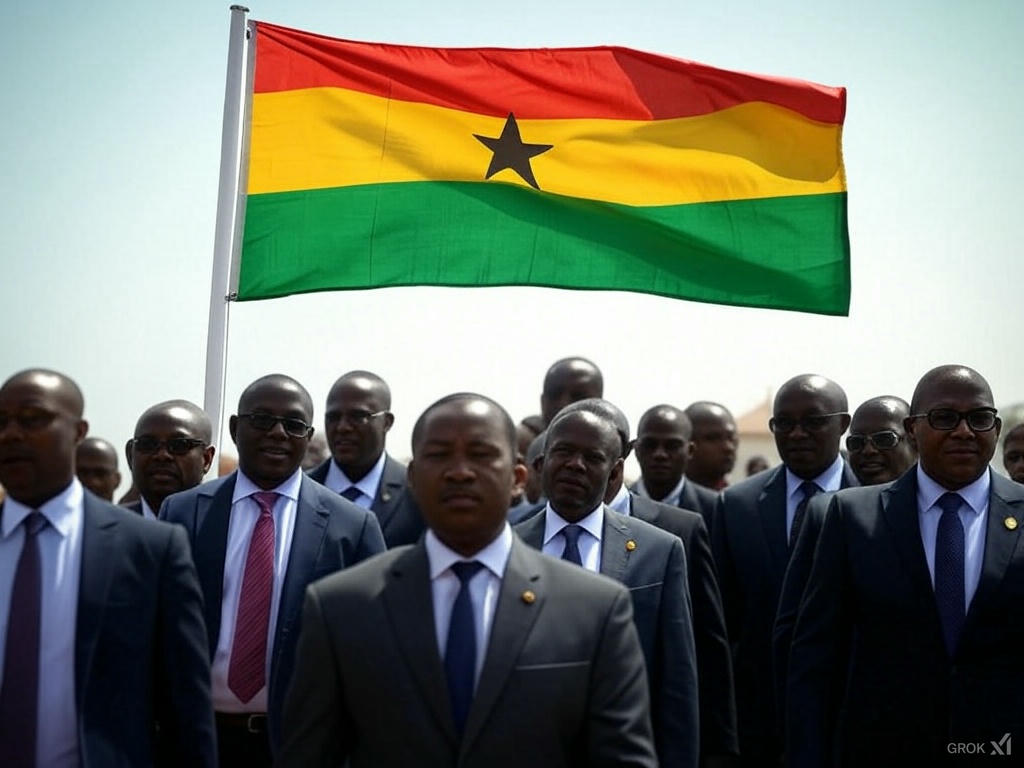Honoring the Past, Shaping the Future
The history
founding & early years –
The Origin of the United Party

The UP was formed in 1957 as a merger of several political parties and movements, each representing diverse regional, cultural, and ideological interests. These included:
- National Liberation Movement (NLM): A Ashanti-based party advocating for federalism and regional autonomy.
- Northern People’s Party (NPP): Representing the interests of Ghana’s northern regions.
- Anlo Youth Organization: A voice for the Ewe people in the Volta Region.
- Togoland Congress: Advocating for the integration of British Togoland into Ghana.
- Ga Shifimo Kpee (Ga Standfast Society): A movement focused on the rights and development of the Ga people in Accra.
- Muslim Association Party: Representing the interests of Ghana’s Muslim community.
Members of this alliance agreed to defend decentralized power structures together with regional equality and multiple democratic parties which stood against Kwame Nkrumah’s Convention People’s Party (CPP) centralized one-party system.
The UP Tradition featured important political figures such as:
Major political figures of Ghana’s past led the United Party which included Dr. Kofi Abrefa Busia, J.B. Danquah , S.G. Antor and Imoru Salifu.
Prime Minister Kofi Abrefa Busia emerged from being an academic politician to take Ghana’s top executive position in 1969. Dr. Dr. Kofi Abrefa Busia persistently supported democratic principles together with human rights defense and economic freedom at all times.
J.B. Danquah: A founding father of Ghanaian nationalism and a key intellectual force behind the UP. Through his activism and writings Danquah established the fundamental concepts that would arise as Ghana’s democratic standards.
S.G. Antor: A leader of the Togoland Congress and a vocal advocate for the integration of British Togoland into Ghana.
Northern People’s Party member Imoru Salifu fought vigorously to develop Ghana’s northern territories.
Together with other leadership figures they demonstrated the UP’s dedication to both inclusive political management as well as cultural heritage conservation and economic independence.
party expansion & growth –
The Coalition

The political alliance brought together members who adopted decentralized governance along with regional equality and multi-party democracy through an alternative framework that opposed Kwame Nkrumah’s Convention People’s Party (CPP) one-party system.
The People’s Popular Party fought a crucial battle to achieve Ghana’s independence
The political development of Ghana took shape fundamentally through the UP’s essential involvement as independence arrived. The Convention People’s Party under Kwame Nkrumah pursued a centrally managed socialist Ghana but the Unionist Party believed regional self-government along with cultural protection would be the future framework.
Many Ghanaians supported the UP because it advocated multi-party democracy with good governance aside from preventing one-party dominance. The UP proved itself as an influential opposition group due to its ideological conflict with the CPP which shaped early Ghanaian politics.
The inclusive governance, cultural preservation, and economic freedom.
The UP’s Legacy in Modern Ghana

After military rule gained power during the 1960s the UP lost its existence but its historical influence remains strong in Ghana’s political system and social framework. The political ideas of multi-party democracy and regional equity and good governance developed by the UP Tradition eventually led Ghana toward democratic governance in 1992.
Through research advocacy and collaborative work UPTI maintains the UP’s core values and promotes them for modern Ghana. Through research and advocacy and public-private collaboration UPTI demonstrates how the UP’s vision remains important for Ghana to achieve its goal of free prosperity and inclusive society.
Today’s UP Tradition Institute upholds past achievements to form the vision for future generations.
The UP Tradition continues to live across generations since it empowered people through diversity and principled leadership. The continued celebration of the UP and its leaders at UPTI serves to ignite modern-day policymakers and activists and citizens toward following the values of democracy and sustainable development.
Progress throughout the 21st century remains achievable for Ghana because its citizens work collaboratively through a shared focus on public welfare.
The Revival –
Launching the UP Tradition Institute

In August 2022, the UP Tradition Institute (UPTI) was founded by Dr. Razak Kojo Opoku, marking a significant revival of the UP Tradition in Ghana’s political and intellectual discourse. The establishment of UPTI was not merely a nostalgic nod to the past but a deliberate effort to reinvigorate the UP’s core values of freedom, democracy, good governance, and inclusive development in a modern context.
Why 2022?
The year 2022 brought the perfect timing to start the UP Tradition Institute as multiple factors indicated its necessity. Ghana reached a democratic milestone in 2022 since it completed thirty years of peaceful multi-party governance so the nation became ready to analyze democratic principles and enhance their future foundation.
Despite Ghana’s electoral progress multiple issues including corruption alongside economic unlevelness along with institutional frailties continued to persist. The establishment of UPTI aimed to fight these problems through investigative research and political lobbying activities as well as modern policy development strategies.
The 65th anniversary of Ghana’s independence during 2022 created an ideal time to praise the UP’s historical dedication to Ghana’s independence and nation-building.
UPTI established a fresh era of leadership which maintained the UP principles by implementing them to handle current challenges.
The Significance of UPTI’s Revival
The 2022 revival of United Party Tradition Initiative served as a historical tribute and moreover it operated as a mobilizing force.
UPTI works to revive the UP Tradition for three key purposes.
- Perfecting a new generation requires teaching them to support democratic values along with freedom and good governance.
- The UP’s principles should be used to address current challenges such as climate change as well as digital transformation and global economic shifts.
- UPTI aims to create connections between Ghana’s political traditions and upcoming objectives while utilizing historical wisdom for present-day choices.
join our US
Join the millions of people fighting for their rights and country’s economic growth.




